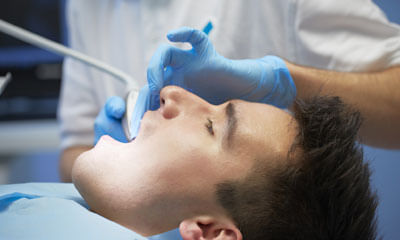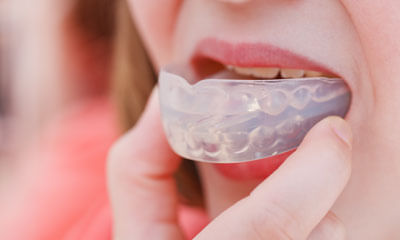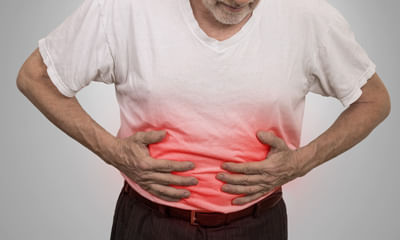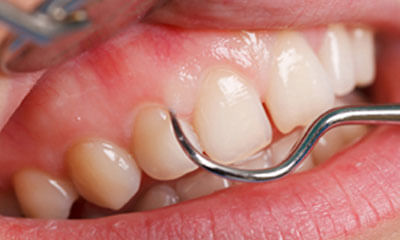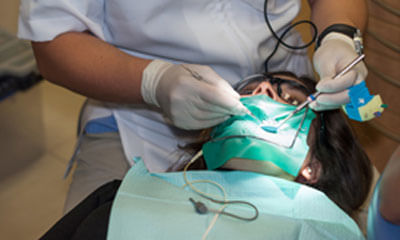Gum Bleeding While Brushing
I'm experiencing gum recession and swollen and red gum diagnosed by stage 1 of peronditites can I use hydrogen peroxide ...
Ask Free Question
Hydrogen peroxide can be used only under the supervision of a professional only. The symptom of bleeding gums warrants referral to a periodontist or an appropriately qualified dental surgeon. - use a soft toothbrush -- and brush properly! brush your teeth for at least two minutes twice a day and after meals. Hard brushing can further damage the soft tissues of your mouth. - floss at least once a day and be sure to floss beyond the gum line to remove more plaque. - control bleeding by applying pressure to the area with a cold compress. - rinse with salt water or hydrogen peroxide to keep the area clean. Avoid mouthwashes that contain alcohol, which can dry out your mouth. - stay away from smoking and other tobacco products, which can aggravate bleeding gums. - eat a balanced diet and limit snacking between meals. Carbohydrates and sugars feed dental plaque. - try an oral irrigation device, commonly known as a "water pick, to clear debris from around the gum line. - you may need deep cleaning along with surgical curettage or gum strengthening procedure. Use pepsodent tooth paste & gum paint for 2 to 3 weeks. Advance procedures can be done with laser. You may consult me in person.
Mujhe pyria hai kaafi saalo se lekin kabhi theek ho jata phir kabhi ho jata left side and sabse peeche side dard bhi kab ...
Ask Free Question
Causes of pyria: bleeding gums are caused by inadequate plaque removal. Plaque contains germs which attack the healthy tissue around the teeth. This will cause the gums to become inflamed and irritated, which may cause them to bleed when brushing or flossing. This is called gingivitis and is the first stage of gum disease. Kindly consult a dentist in person for further suggestion. We need more investigations with clinical examination to decide upon treatment. You may need deep cleaning along with surgical curettage or gum strengthening procedure. Rinse your mouth thoroughly with a mouth wash after every meal. Use pepsodent tooth paste & gum paint for 2 to 3 weeks. Advance procedures can be done with laser. You may consult me in person.
I ate chaat by ordering it online. In that I ordered raj kachori. As it is delivered they bought it in a plastic box. Th ...
Ask Free Question
As per cdc guidelines ,hiv doesn't transmit via food, water,and saliva in usual cases. Very rare cases may occur in direct contact with blood of infected person with wound in oral mucosa. Regarding your concern, I think you shouldn't be worried. You have negligible chance of infection, if any possibility whatsoever.
I had deep cavity in my lower back molar but now since few days my gums have started bleeding even with a slight pressin ...
Ask Free Question
1 I understand your concern about the bleeding gums near your deep cavity in the lower back molar. Unfortunately, I cannot provide medical advice or diagnose your situation. However, I can offer some general information and suggest the next steps you should take: possible causes of bleeding gums: inflammation from the deep cavity: the bacteria in the cavity can irritate the surrounding gums, leading to inflammation and bleeding. Gum disease: bleeding gums can also be a symptom of gum disease, which is a separate condition from cavities. What to do: schedule an appointment with your dentist as soon as possible: they can properly assess the situation, take x-rays if necessary, and determine the cause of your bleeding gums. In the meantime, practice good oral hygiene: brush your teeth twice a day with a soft-bristled toothbrush and fluoride toothpaste. Floss daily, being gentle around the area with the bleeding gums. Rinse your mouth with a mouthwash containing fluoride. Avoid any harsh brushing or flossing: this could further irritate the gums and worsen the bleeding. Do not try to self-diagnose or treat the problem: only a dentist can provide the proper diagnosis and treatment. Additional information: deep cavities usually require treatment such as fillings or crowns to prevent further damage and infection. If you have gum disease, your dentist will recommend a treatment plan, which may include professional cleaning, scaling and root planing, or other procedures. Remember, early diagnosis and treatment are crucial for preventing further complications from both cavities and gum disease. I hope this information is helpful. Please don't hesitate to reach out if you have any other questions. Sources dietfoodpro.com/how-to-combat-tooth-sensitivity. Html.
Having bad breath problem since childhood and even after using tooth paste or flosses recommended by doctor, its not cur ...
Ask Free Question
Follow these herbal combinations sootshekhar ras 1 tablet twice a day chandanadi avleh 10 gm twice a day.
I have am suffering from intestinal disorder as well as stomach disorder, last 14 years I took lot of allopathic medicin ...
Ask Free Question
Follow these herbal combinations for complete cure sootshekhar ras 1 tablet twice a day pittari avleh 10 gm twice a day.
I am 21 years old studying pg at jalandhar not able to chew food properly as my wisdom teeth below swelling occurred pas ...
Ask Free Question
I understand your discomfort with your swollen wisdom teeth preventing you from chewing properly. Here are some suggestions on precautions and medications that might help until you can see a dentist: precautions: avoid hot and cold food: opt for lukewarm or room-temperature foods that are soft and easy to swallow. Examples include mashed potatoes, soups, yogurt, smoothies, and scrambled eggs. Cut your food into small pieces: make chewing easier by cutting your food into bite-sized pieces or even mashing them further. Maintain good oral hygiene: brush your teeth twice a day, floss once a day, and consider using a mouthwash. This will help keep the area clean and prevent further infection. Apply a cold compress: place a cold compress (wrapped in a towel) on your cheek next to the swollen area for 15-20 minutes at a time, several times a day. This can help reduce swelling and pain. Avoid strenuous activity: strenuous activities can increase blood flow and worsen swelling. Stick to light activities and get plenty of rest. Medications (over-the-counter): pain relievers: over-the-counter pain relievers like ibuprofen or acetaminophen can help manage discomfort. Follow the dosage instructions carefully and do not exceed the recommended daily intake. Anti-inflammatory medications: ibuprofen is also an anti-inflammatory medication that can help reduce swelling. Consider using it in addition to a pain reliever for added relief. It's important to see a dentist as soon as possible: a dentist can properly diagnose the cause of the swelling and determine the best course of treatment. They might prescribe antibiotics if an infection is present. Depending on the severity of the situation, they might recommend removing the wisdom teeth, especially if they are causing persistent pain or impacting your quality of life. Additional tips: rinse your mouth with salt water: mix a teaspoon of salt with warm water and gently rinse your mouth several times a day. This can help reduce inflammation and keep the area clean. Avoid smoking and alcohol: smoking and alcohol can irritate the gum tissue and worsen swelling. Stay hydrated: drinking plenty of water helps keep your mouth moist and can aid in the healing process. Remember, these are just suggestions, and it's crucial to prioritize professional medical advice. Seeing a dentist will provide the most accurate diagnosis and treatment plan for your specific situation. I hope this information helps you manage your discomfort until you can visit a dentist. Please get well soon!
Since past two weeks ,i'm getting blood in my mouth whenever i'm washing my face ,blood is coming out with saliva. What ...
Ask Free Question
Bleeding from mouth can be due to multiple reasons like poor oral hygiene, gum diseases or incorrect brushing technique. Kindly visit a dentist to rule out your condition. If its due to poor oral hygiene, all you need is a proper cleaning by the dentist.
How to treat constant dry mouth, front teeth throbbing, bleeding gums from tooth brushing, spit saliva with blood in sal ...
Ask Free Question
I'm sorry to hear about your constant dry mouth, throbbing front teeth, bleeding gums, and blood in your saliva. These symptoms can be concerning and require proper medical attention. Unfortunately, as a language model, I cannot provide medical advice or diagnoses. However, I can offer some general information and suggest you reach out to a qualified healthcare professional for personalized guidance. Here are some potential causes of your symptoms: dry mouth: this can be caused by various factors, including medications, underlying medical conditions like sjogren's syndrome, or simply dehydration. Throbbing front teeth: this could indicate dental issues like tooth decay, abscesses, or sensitivity. Bleeding gums and blood in saliva: this is often a sign of gum disease (gingivitis) or periodontitis, but it can also be caused by trauma, certain medications, or vitamin deficiencies. Given your history of h. Pylori infection and duodenal ulcer, it's important to discuss these symptoms with your doctor or dentist, as they could be related to those past issues. Additionally, your current medications or any recent changes in your health or lifestyle could also be influencing these symptoms. Here are some things you can do until you can see a healthcare professional: stay hydrated: drink plenty of water throughout the day to combat dry mouth. Practice good oral hygiene: brush and floss your teeth gently twice a day and use a mouthwash if recommended by your dentist. Avoid irritants: limit your intake of sugary drinks, alcohol, and tobacco, as these can worsen your symptoms. Use a humidifier: this can help add moisture to the air and relieve dry mouth symptoms. Remember, self-diagnosis and treatment can be dangerous, so please reach out to a qualified healthcare professional for proper evaluation and personalized advice. They can perform a thorough examination, run any necessary tests, and develop a treatment plan specific to your needs. I hope this information is helpful. Please prioritize your health and seek medical attention to address these concerning symptoms. Wishing you all the best in recovering from this.
Dear doctors, I have this problem of sore gums and inflammation in my upper back teeth. I get pain when I chew food. Als ...
Ask Free Question
This could be vitamin c deficiency or gum disease. Best to visit a dentist to check for oral health issues. Meanwhile, you can use zytee-l for local application.


